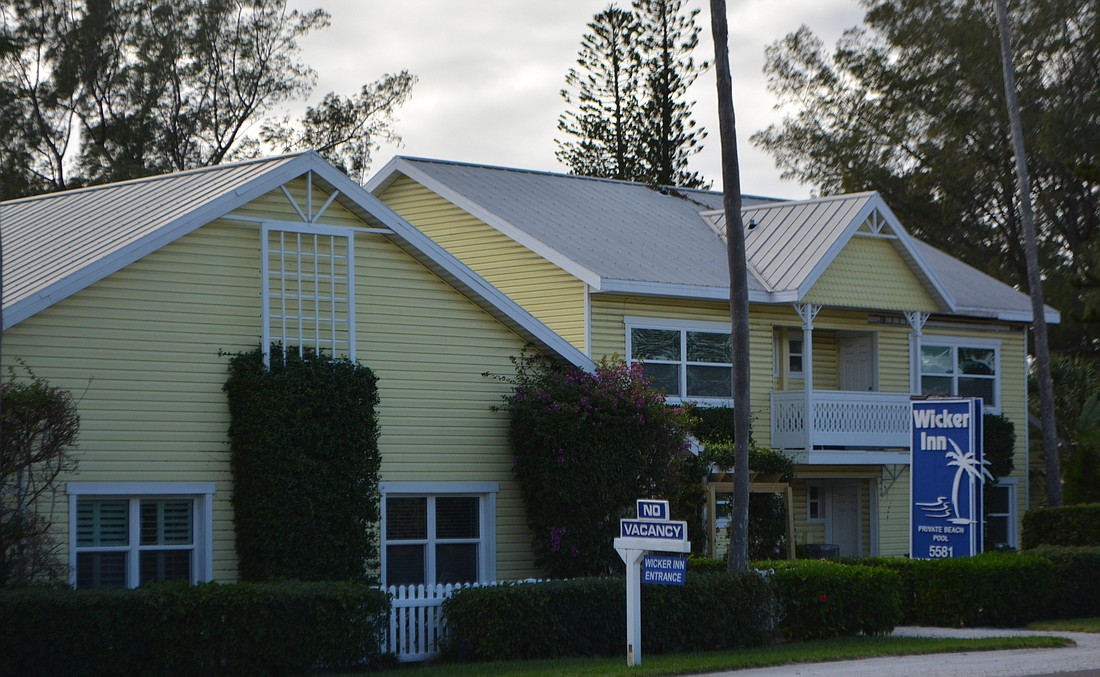- May 2, 2025
-
-
Loading

Loading

Rental property owners need to start scheduling inspections of their properties as soon as possible in preparation for a registration program to start Oct. 1 on Longboat Key.
The program was passed unanimously by Longboat Key town commissioners Monday.
Even as the program passed, commissioners still had questions about the ordinance. Vice Mayor Maureen Merrigan asked staff why other jurisdictions programs also cover occupancy standards, but the one proposed for Longboat Key does not.
"Registration programs like those in the jurisdictions north of us are dealing with short-term rentals like weekly rentals where occupancy is a much bigger issue," Planning, Zoning and Building Director Allen Parsons said. "...We wanted to stay out of modifying anything that had to do with how we regulate short-term rentals...We're not modifying anything the town has had on its books since at least 1982."
The concern with making too many changes is the possibility of the town losing its grandfathered status, which allows the town to regulate short-term rental properties.
Mayor Ken Schneier questioned staff confidence in getting the over 1,000 rental property owners identified to register with the program.
"I think we have a high confidence level because all of the rentals that are taking place in the town today should have a business tax receipt," Parsons said.
Each year, town staff sends notice to property owners about tax receipt renewal requirements. In this year's notice, staff will include a notice about the newly required program.
The program intends to allow the town to keep tabs on properties within its jurisdiction that serve as vacation getaways instead of residential uses. It will only affect properties that are rented out for six months or less.
To sign up for the required program, property owners are expected to pay about a $200 fee to cover the cost of the certificate to be displayed in the home and to cover town staff inspections of the residence. Submitting a renewal application will cost $150 and be required every two years after the initial registration.
Following such protocol is expected to provide benefits to the town including contact information of property owners should something go awry. Similarly, the certificate is required to be posted inside the property and be accessible by guests, providing the owner’s phone number, means of certification and safety information.
Other information that will be required to be posted includes:
Along with the certificate, property owners would receive a number associated with their registration that they will be required to include on listings and advertisements for the rental. They will also be required to ensure that the listing specified that potential visitors will be expected to stay at the residence for at least 30 days.
Starting in July, staff will be reaching out to property managers, homeowners associations and the Federation of Longboat Key Condominiums as well as posting on town social media pages to further get the word out about the program and its effective date.
At the heart of the program is an overarching goal of maintaining the town’s character and avoiding pitfalls of becoming a tourist-oriented community like other barrier islands directly north and south of the town.
The town is one of the few that retains the power to regulate short-term rentals. This is largely in part to the town passing an ordinance in 1982 that made a clear distinction between tourism and residential zoning. Properties with a tourism distinction are the only ones allowed to rent for less than a month. All other properties are required to rent out for a month or more.
Following a density referendum and comprehensive plan update in 1984, approximately 30 tourism properties were changed to a residential zoning distinction, which placed them in a grandfathered status and allow them to continue operating as tourism properties. In doing so, the town’s hope was to reduce the overall balance of tourism uses over time.
Properties including Sand Cay, Zota Beach Resort, Four Winds Beach Resort and eventually the Residences at St. Regis Longboat Key are not required to enroll in the program because of their tourism zoning distinctions. The properties will not be expected to register their properties with the town as they already face additional regulations from the state, which regulates hotels.
The time period of six months or less for the program was chosen because these rentals are required to pay tourism development taxes to either Sarasota or Manatee counties, pay applicable sales tax to the Florida Department of Revenue, meet life/safety requirements for transient and non-transient lodging and obtain a business tax receipt from the town.
According to the staff memo, town staff sees the program as acting as a proactive measure with benefits, including
Town staff listed vehicular traffic, parking, property maintenance and noise as a few of the potential impacts of unchecked tourism allowances.
About 1,000 properties were identified by town staff when searching listings on popular online platforms including Airbnb, Homeaway and VRBO. If all the properties were to register, the town could expect an additional $200,000 in revenue every couple of years.
Correction: This article has been updated to clarify how different zoning districts are impacted by the program.